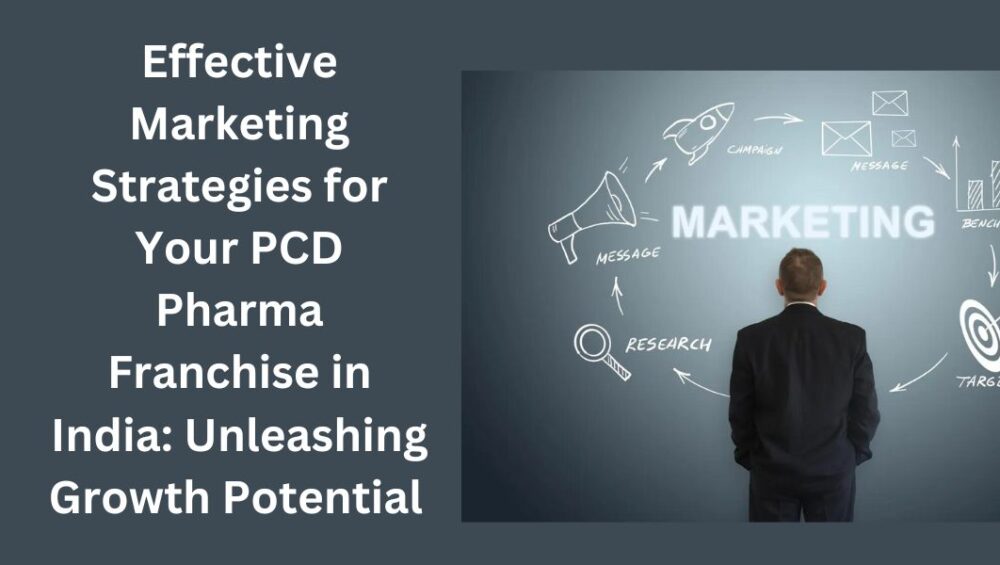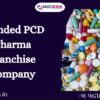Introduction to PCD Pharma Franchises in India
Propaganda Cum Distribution (PCD) Pharma Franchises represent a vibrant segment of the Indian pharmaceutical industry, offering promising opportunities for business growth and market penetration. This sector thrives on innovative marketing strategies tailored to meet the unique demands of the healthcare market in India.
What is a PCD Pharma Franchise?
A PCD Pharma Franchise operates under a model where the franchisee is granted the rights to sell and distribute pharmaceutical products by the franchisor. This model benefits from low investment requirements and extensive support from the parent pharma company, including marketing and promotional aids.
Importance of Effective Marketing in Pharma
Effective marketing is crucial in the pharmaceutical sector as it bridges the gap between the product and the healthcare provider or end-user. It not only helps in building brand awareness but also ensures that the benefits and uses of different medicines are communicated effectively, influencing treatment choices and promoting health outcomes.
Core Marketing Strategies for PCD Pharma Franchises
Digital Marketing Approaches
In today’s digital age, leveraging online platforms can dramatically increase the reach and impact of your marketing efforts. Social media channels like Facebook, LinkedIn, and Instagram allow for targeted campaigns that can engage healthcare professionals and consumers alike.
Leveraging Social Media
Social media platforms offer a direct line of communication to a diverse audience. Regular posts about product launches, health tips, and interactive live sessions with healthcare experts can significantly enhance brand visibility and customer engagement.
SEO Optimization for Pharma Content
Optimizing your online content through SEO practices ensures that your website and blog appear at the top of search engine results, making it easier for potential clients to find your products and services. This includes using keywords relevant to the pharmaceutical industry and your specific offerings.
Traditional Marketing Techniques
Despite the surge in digital marketing, traditional methods still hold value. Personal interactions with medical professionals through medical representatives provide a personalized touch that digital platforms cannot fully replicate.
The Role of Medical Representatives
Medical representatives are the backbone of traditional pharma marketing, fostering relationships with doctors and pharmacy owners. Their detailed product knowledge and persuasive skills play a crucial role in influencing stocking and prescription decisions.
Organizing Medical Camps and Awareness Programs
Medical camps and health awareness programs are excellent for building community trust and promoting health literacy. These events provide a platform for direct consumer interaction and immediate feedback on your products.
Innovations in Pharma Marketing
Incorporating Technology in Marketing
Adopting new technologies can provide a competitive edge in creating more personalized and efficient marketing strategies. Artificial Intelligence, for example, can analyze large volumes of data to predict market trends and consumer behavior.
Using AI for Customer Insights
AI tools can process and analyze customer data from various touchpoints to generate insights into consumer preferences and buying behavior, helping tailor marketing campaigns more effectively.
Mobile Apps for Enhanced Customer Engagement
Developing a mobile app for your PCD Pharma franchise can facilitate better communication with customers, provide informational content, and directly notify users about new products and offers, enhancing customer engagement and loyalty.
Building Brand Identity and Trust
Importance of Branding in Pharma
Branding in the pharmaceutical industry is not just about logos and company colors; it’s about establishing a reputation for reliability and quality. Effective branding ensures that your products are recognized and preferred over competitors.
Ethical Marketing Practices
In an industry as sensitive as healthcare, maintaining high ethical standards in marketing is crucial. This includes providing accurate product information, respecting patient confidentiality, and avoiding misleading claims.
Transparency and Communication
Transparency about product ingredients, side effects, and pricing helps build trust with your customers. Clear and open communication regarding any product updates or company news is also vital for maintaining long-term relationships.
Regulatory Compliance and Marketing
Understanding Pharma Regulations
Navigating through the complex regulatory environment is essential for marketing pharmaceutical products. Compliance with guidelines laid out by authorities like the Drugs and Controller General of India (DCGI) ensures that your marketing practices are legally sound and ethically responsible.
Advertising Standards
Adhering to advertising standards is critical in ensuring that all marketing materials, whether online or offline, meet regulatory requirements and do not mislead consumers.
Legal Constraints in Marketing
Awareness of legal constraints is crucial to avoid penalties and ensure your marketing strategies align with national health policies and regulations.
Monitoring and Adapting Marketing Strategies
The Role of Feedback in Marketing Adjustments
Feedback from customers and healthcare professionals is invaluable for refining marketing strategies. Regular assessment of feedback helps in adjusting tactics to better meet the needs and preferences of the target audience.
Patient Feedback Mechanisms
Establishing robust mechanisms for gathering patient feedback, such as surveys and focus groups, can provide direct insights into the effectiveness of your marketing strategies and areas needing improvement.
Market Trend Analysis
Keeping a close watch on market trends and competitor activities can provide insights into what strategies are working and what adjustments need to be made to stay competitive.
Conclusion: Securing the Future of Your PCD Pharma Franchise through Strategic Marketing
To thrive in the competitive landscape of the Indian pharmaceutical industry, PCD Pharma franchises must employ a blend of traditional and innovative marketing strategies. By understanding your audience, staying compliant with regulations, and continuously adapting to market trends, your franchise can achieve sustainable growth and build a strong brand presence.
FAQ about Marketing Strategies for PCD Pharma Franchises
What are the key benefits of digital marketing for a PCD Pharma franchise?
How can medical representatives influence the success of pharma marketing?
What role does ethical marketing play in the pharmaceutical industry?
Ethical marketing in the pharmaceutical industry plays a critical role in ensuring that the promotion of medications and treatments is conducted honestly, transparently, and responsibly. It helps maintain public trust by ensuring that marketing practices do not mislead healthcare providers or patients about the benefits and risks of products. Ethical marketing also supports compliance with legal and regulatory standards, guiding companies to focus on the genuine health needs of the population rather than solely on profit motives. This approach not only aids in safeguarding patient health and safety but also enhances the credibility and reputation of pharmaceutical companies. Ultimately, ethical marketing contributes to the overall goal of improving healthcare outcomes while upholding moral integrity and public confidence in pharmaceutical products.
How can technology like AI and mobile apps transform pharma marketing?
Technology such as AI and mobile apps can transform pharmaceutical marketing by enabling more personalized, efficient, and data-driven strategies. AI can analyze vast datasets to identify patterns and predict market trends, helping companies to target their advertising more effectively and tailor their messages to specific patient groups. Mobile apps facilitate direct engagement with consumers and healthcare professionals, offering personalized medication information, reminders, and support. This integration of technology enhances user experience, improves adherence to treatment, and optimizes marketing efforts by providing actionable insights and real-time feedback from users.
What are the common challenges in adhering to pharma regulations in marketing?




